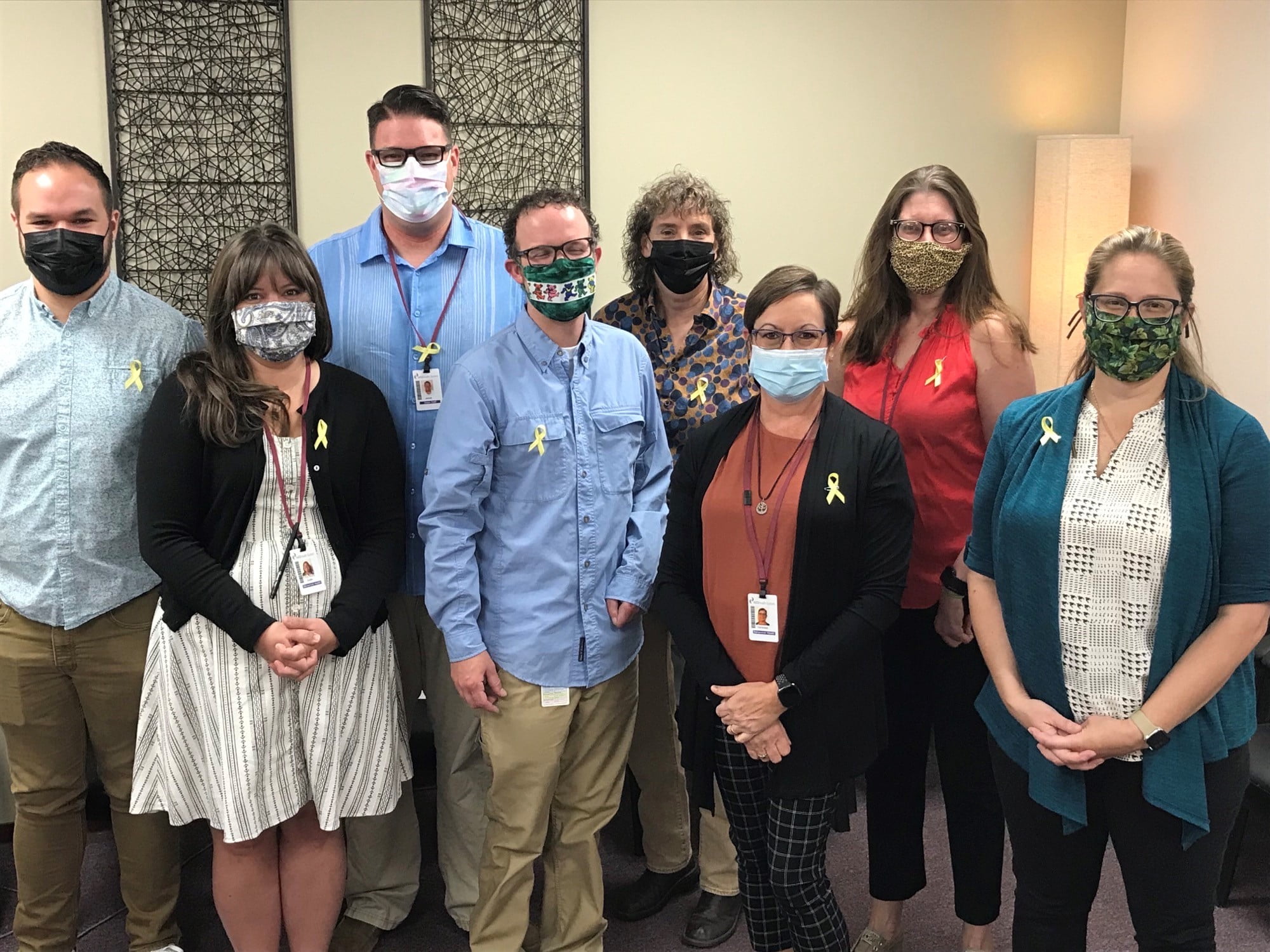PHOTO: Axis Health System staff at Durango Integrated Healthcare wear yellow ribbons for National Suicide Prevention Awareness Month, from left: Clinical Supervisor Olive Holmes and Substance Use Disorder therapist Brooke Harrison.
Suicide touches the lives of many people. Many of us may know someone, such as a friend, family member or coworker who has attempted or died by suicide. Over the past two decades, suicide rates have steadily risen in the United States. Suicide is currently ranked 10th for cause of death among all ages.
Suicide rates in Southwest Colorado are also high. To prevent suicide, we need to be able to talk about it openly – without fear or shame. National Suicide Prevention Awareness Month in September is a great time to continue the conversation.
The work Axis Health System does to prevent suicide among our patients is a critical element of the comprehensive healthcare we provide. Axis has long been committed to provide effective clinical and professional practices focusing on recovery for people who are at increased risk for suicide. We support safety, help-seeking and healing.
“The work of caring for individuals at risk for suicide is challenging,” said Shelly Burke, CEO of Axis Health System. “We are committed to making sure our staff have the skills and confidence to engage with and treat these patients.”
Axis continues to be committed to the Zero Suicide framework, which is a comprehensive approach to suicide care jointly developed by the Suicide Prevention Resource Center and the National Action Alliance for Suicide Prevention (NAASP) Projects of Education Development Center. Axis has implemented many workflows and clinical guidelines. We provided Zero Suicide training for our clinical staff and professional support staff over the last four years. The Zero Suicide framework represents a commitment to patient safety – the most fundamental responsibility of healthcare – and also to the safety and support of clinical staff, who do the demanding work of treating and supporting suicidal patients. The essential elements of Zero Suicide include:
- Create a leadership-driven, safety-oriented culture committed to dramatically reducing suicide among people under care.
- Include suicide attempt and loss survivors in leadership and planning roles.
- Develop a competent, confident and caring workforce.
- Systematically identify and assess suicide risk among people receiving care.
- Ensure every person has a suicide care management plan, or pathway to care, that is both timely and adequate to meet his or her needs. Include collaborative safety planning and restriction of lethal means.
- Use effective, evidence-based treatments that directly target suicidality.
- Provide continuous contact and support, especially after acute care.
- Apply a data-driven quality improvement approach to inform system changes that will lead to improved patient outcomes and better care for those at risk.
“The most vital difference we can make in our communities is to work with our patients, family members and our community partners,” said Burke.
We all have a role to play. Together, we can save lives. If you or someone you know is in crisis, call the 24/7 Axis 24/7 Care Line: 970.247.5245.
Pictured below: Durango Integrated Healthcare staff wear yellow ribbons as a reminder: You’re never alone. #NationalSuicidePreventionAwarenessMonth From left: Josh Maes, Jodie Miller, Jesse Villanueba, John Floyd, Anne DiZenzo, Vanessa Sybert, Dagny Lowdowski.




